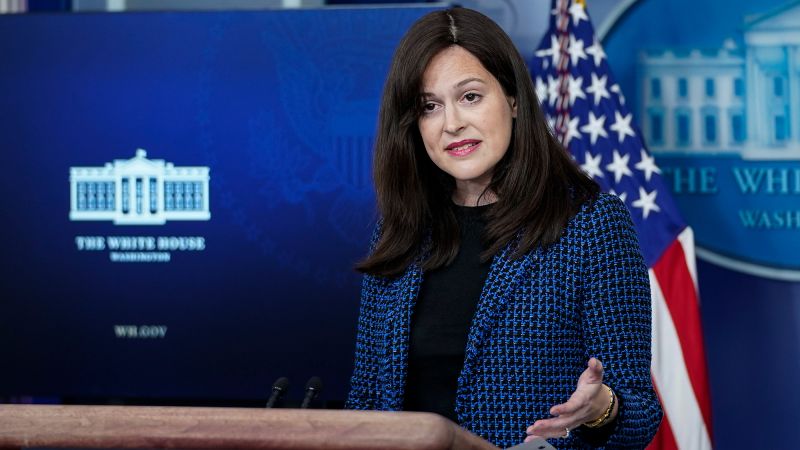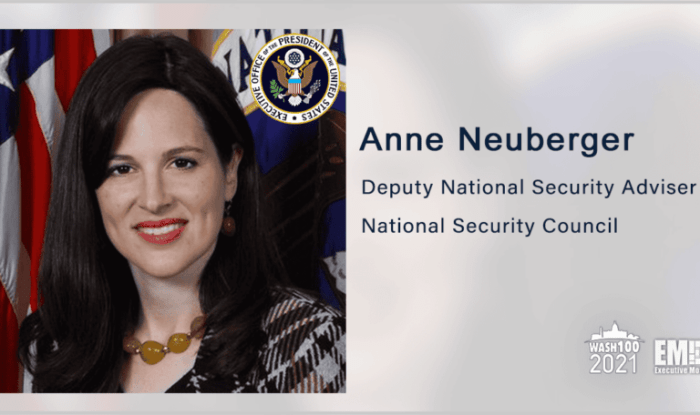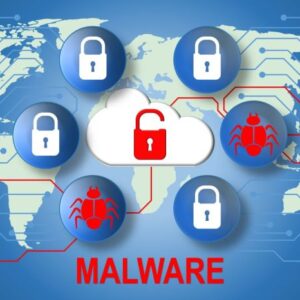Anne neuberger cybersecurity q and a – Anne Neuberger Cybersecurity Q&A: Dive into the world of cybersecurity with this insightful exploration of Anne Neuberger’s career, expertise, and impact on UK national security. We’ll unpack her key contributions, examine her perspectives on emerging threats, and delve into the strategies she advocates for a safer digital future. Get ready for a deep dive into the mind of a cybersecurity powerhouse.
From her significant roles within the UK government to her influential public statements, we’ll analyze Neuberger’s approach to tackling complex cyber challenges. We’ll explore how her work has shaped national cybersecurity policy, and what her insights tell us about the future of this ever-evolving landscape. This isn’t just a Q&A; it’s a strategic look at the forefront of digital defense.
Anne Neuberger’s Background and Expertise
Anne Neuberger’s career showcases a remarkable trajectory in cybersecurity, culminating in significant contributions to UK national security. Her journey exemplifies a blend of technical expertise, strategic leadership, and a deep understanding of the geopolitical implications of cyber threats. This deep dive explores her background, key roles, and lasting impact on the UK’s cyber defense posture.
Anne Neuberger’s Career Progression and Key Roles
Anne Neuberger’s career demonstrates a steady climb to prominence within the UK’s cybersecurity landscape. Starting with a strong foundation in technology, she transitioned into increasingly influential roles, leveraging her expertise to shape national policy and response mechanisms. Her career path highlights a deliberate progression from technical expertise to strategic leadership, a crucial element in effective cybersecurity management. She has consistently held positions requiring a deep understanding of both technical intricacies and broader geopolitical implications.
Significant Contributions to UK National Cybersecurity
Neuberger’s contributions to UK national cybersecurity are extensive and span several critical areas. Her leadership during major cyber incidents has been instrumental in mitigating damage and bolstering national resilience. She played a key role in shaping national strategies, policies, and investments in cybersecurity infrastructure. Her efforts have been crucial in raising awareness about cyber threats among both the public and private sectors, fostering a more proactive and collaborative approach to national cyber defense. A significant portion of her impact is not readily quantifiable, representing a crucial behind-the-scenes contribution to national security.
Expertise in Specific Areas of Cybersecurity
Anne Neuberger’s expertise extends across a broad spectrum of cybersecurity domains. Her understanding of cyber threats, ranging from state-sponsored attacks to sophisticated criminal activities, is exceptionally deep. This includes a nuanced understanding of the motivations and capabilities of various threat actors. Her experience in national security ensures her strategies consider the broader geopolitical context, linking cyber threats to national interests and international relations. Her expertise in incident response is evident in her ability to lead effective and coordinated responses to major cyber incidents, minimizing damage and ensuring a rapid recovery.
Comparison of Roles and Responsibilities
The following table compares Anne Neuberger’s roles and responsibilities with those of other prominent figures in the field. Note that this is not an exhaustive list, and the contributions are summarized for brevity.
| Name | Role | Organization | Key Contributions |
|---|---|---|---|
| Anne Neuberger | Director of National Cyber Security Centre (NCSC), Deputy National Security Advisor for National Security and Technology | UK Government | Leadership during major cyber incidents, shaping national cybersecurity strategy, public awareness campaigns |
| Jen Easterly | Director of the Cybersecurity and Infrastructure Security Agency (CISA) | US Government | Leading US federal cybersecurity efforts, improving national cybersecurity infrastructure |
| Chris Krebs | Former Director of CISA | US Government | Improving election security, leading response to SolarWinds attack |
| Rob Joyce | Former NSA Cybersecurity Advisor | US Government | Advising on national cybersecurity strategy, leading offensive cybersecurity operations |
Key Themes in Anne Neuberger’s Public Statements

Source: cnn.com
Anne Neuberger’s cybersecurity Q&A touched on crucial issues, but even in the digital realm, human connection matters. Successfully navigating the complexities of cybersecurity requires strong communication skills, which are also vital for thriving in a hybrid work environment. Mastering the art of small talk, as outlined in this helpful guide on how to make small talk hybrid office , can surprisingly improve team collaboration and ultimately, bolster overall cybersecurity efforts by fostering a more communicative and aware team.
Returning to Neuberger’s insights, strong communication is key to effective cybersecurity strategies.
Anne Neuberger’s public pronouncements on cybersecurity reveal a consistent focus on several key areas, shaping her approach to national security and influencing policy discussions. Her emphasis on collaboration, proactive defense, and the human element consistently emerges, offering valuable insights into effective cybersecurity strategies.
Collaboration as a Cornerstone of National Cybersecurity, Anne neuberger cybersecurity q and a
Neuberger repeatedly stresses the importance of public-private partnerships and international collaboration in addressing cybersecurity threats. She advocates for a shared responsibility model, where government, industry, and academia work together to share threat intelligence, develop best practices, and build a more resilient cyberspace. This collaborative approach acknowledges that no single entity possesses all the necessary expertise or resources to combat sophisticated cyberattacks effectively. The implications for national cybersecurity strategy are significant, requiring a shift from a solely government-led approach to a more inclusive and coordinated ecosystem. This collaborative model allows for the rapid sharing of information, leading to quicker responses to emerging threats and a more robust overall defense posture. This contrasts with some more traditional approaches that prioritize government secrecy and control, potentially hindering the speed and effectiveness of responses.
Proactive Defense and Risk Management
Another recurring theme in Neuberger’s statements is the need for a proactive, rather than reactive, approach to cybersecurity. She emphasizes the importance of robust risk management frameworks, proactive threat hunting, and investing in preventative measures before an incident occurs. This approach focuses on building resilience and minimizing the impact of attacks, rather than solely responding to them after the fact. For national cybersecurity strategy, this translates to a need for significant investment in cybersecurity infrastructure, talent development, and advanced technologies like artificial intelligence and machine learning for threat detection and response. Compared to some experts who focus primarily on incident response, Neuberger’s emphasis on proactive defense aligns with a more modern understanding of cybersecurity as an ongoing process, not just a set of reactive measures.
The Human Element in Cybersecurity
Neuberger consistently highlights the crucial role of human factors in cybersecurity. This includes emphasizing the importance of cybersecurity awareness training for individuals, promoting a security-conscious culture within organizations, and recognizing the human element in both the creation and mitigation of cyber threats. This theme underscores the need for investment in education and training programs to build a cybersecurity-literate workforce and citizenry. For national cybersecurity strategy, this translates into a need for public awareness campaigns, educational initiatives, and the development of clear guidelines and best practices for individuals and organizations. This approach differs from some experts who might focus primarily on technological solutions, demonstrating Neuberger’s understanding that technology alone cannot solve the complex human dimension of cybersecurity challenges.
Visual Representation of Interconnected Themes
Imagine a three-circle Venn diagram. Each circle represents one of Neuberger’s key themes: Collaboration, Proactive Defense, and the Human Element. The overlapping areas represent the crucial interconnections between these themes. For instance, the overlap between Collaboration and Proactive Defense shows how sharing threat intelligence (collaboration) strengthens proactive defense strategies. The overlap between Proactive Defense and the Human Element highlights the importance of training individuals to implement preventative measures. The central area where all three circles intersect represents the holistic and integrated approach to cybersecurity that Neuberger advocates, emphasizing that a truly effective strategy must encompass all three elements.
Analysis of Cybersecurity Challenges Addressed by Anne Neuberger
Anne Neuberger, in her various roles within the US government, has consistently highlighted and tackled critical cybersecurity challenges. Her approach blends technical expertise with a deep understanding of policy and the need for collaborative efforts across public and private sectors. This analysis examines specific challenges she’s addressed and the strategies she’s advocated for mitigation.
Cyberattacks Targeting Critical Infrastructure
Neuberger has repeatedly emphasized the vulnerability of critical infrastructure—power grids, water systems, healthcare facilities—to sophisticated cyberattacks. These attacks, often state-sponsored, can have devastating consequences, disrupting essential services and impacting public safety and economic stability. She’s advocated for proactive measures such as strengthening cybersecurity defenses through improved network segmentation, enhanced threat detection capabilities, and robust incident response plans. Furthermore, she’s stressed the importance of information sharing and collaboration between government agencies, private sector entities, and international partners to collectively address this threat.
The Rise of Ransomware
The escalating threat of ransomware attacks, which cripple organizations by encrypting their data and demanding payment for its release, has been a central focus of Neuberger’s work. She’s highlighted the need for organizations to implement robust cybersecurity hygiene practices, including regular software updates, multi-factor authentication, and employee security awareness training. Furthermore, she’s promoted the importance of data backups and recovery plans to minimize the impact of a successful ransomware attack. In the public sector, her focus has been on strengthening federal defenses and coordinating responses to large-scale ransomware incidents. In the private sector, the emphasis is on empowering organizations with the tools and knowledge to prevent and mitigate these attacks independently.
Supply Chain Vulnerabilities
Recognizing the interconnected nature of modern systems, Neuberger has underscored the critical importance of securing the software supply chain. Malicious actors can compromise software components early in the development process, introducing vulnerabilities that can later be exploited in deployed systems. Her approach involves promoting secure software development practices, rigorous code reviews, and the use of software bill of materials (SBOMs) to enhance transparency and traceability within the supply chain. She’s also advocated for increased collaboration between software vendors and government agencies to identify and address vulnerabilities quickly and effectively. This approach necessitates a coordinated effort across both the public and private sectors, emphasizing shared responsibility for security.
Combating Misinformation and Disinformation
Beyond traditional cyber threats, Neuberger has also acknowledged the pervasive challenge of online misinformation and disinformation campaigns. These campaigns can undermine public trust, influence elections, and even incite violence. Her approach involves promoting media literacy, fostering critical thinking skills, and supporting efforts to identify and counter malicious actors who spread false information. In the public sector, this involves collaborations with other government agencies and international partners to combat state-sponsored disinformation campaigns. In the private sector, the focus is on empowering individuals and organizations to identify and resist manipulation. Her strategies emphasize the need for multi-faceted approaches, including technological solutions and public awareness campaigns.
Impact of Anne Neuberger’s Work on Cybersecurity Policy
Anne Neuberger’s tenure as the UK’s National Cyber Security Director has undeniably left a significant mark on the nation’s cybersecurity landscape. Her influence extends beyond simply implementing existing strategies; she’s been instrumental in shaping the very fabric of UK cybersecurity policy, advocating for proactive measures and fostering a culture of national resilience. Her work demonstrates a shift towards a more integrated and collaborative approach to cybersecurity, moving beyond reactive responses to proactively address emerging threats.
Her impact can be seen in several key areas. She championed a more proactive and preventative approach to cybersecurity, moving away from a solely reactive model focused on incident response. This involved a greater emphasis on national resilience and preparedness, recognizing that robust cybersecurity is not just the responsibility of government agencies but a shared responsibility across all sectors.
Strengthening National Cyber Security Centre (NCSC) Capabilities
Neuberger’s leadership significantly boosted the NCSC’s capabilities and its profile. Under her guidance, the NCSC expanded its outreach programs, providing crucial support and guidance to businesses and individuals. This proactive approach involved disseminating best practices, providing threat intelligence, and developing resources to improve overall national cyber hygiene. This isn’t merely about technical improvements; it’s about building a culture of cyber awareness and responsibility across the UK. The increased visibility and accessibility of NCSC resources directly reflect her influence in making cybersecurity less of an abstract concept and more of a tangible part of daily life and business operations.
Promoting Collaboration Across Sectors
A key aspect of Neuberger’s influence lies in her emphasis on collaboration. She fostered stronger partnerships between government, industry, and academia to address shared cybersecurity challenges. This collaborative approach, exemplified by initiatives such as the development of shared threat intelligence platforms and joint cybersecurity exercises, has led to a more unified and effective response to cyber threats. The impact is evident in the increased information sharing and coordinated efforts across different sectors, a marked departure from previous siloed approaches.
Comparison with International Counterparts
While direct comparisons are complex due to variations in national contexts and reporting structures, Neuberger’s influence aligns with the growing global trend towards elevating cybersecurity to a national security priority. Figures like Jen Easterly in the US, leading the Cybersecurity and Infrastructure Security Agency (CISA), share a similar focus on proactive measures, public-private partnerships, and building national resilience. However, Neuberger’s focus on fostering a national culture of cyber awareness, alongside technical advancements, might be considered a unique aspect of her contribution, emphasizing education and individual responsibility as cornerstones of a strong national cybersecurity posture.
Neuberger’s most significant contribution to UK cybersecurity policy has been the successful integration of proactive threat mitigation strategies, coupled with a strong emphasis on cross-sectoral collaboration and public awareness, creating a more resilient and informed national cybersecurity landscape.
Future Trends and Predictions Based on Anne Neuberger’s Insights

Source: govconwire.com
Anne Neuberger’s extensive experience in cybersecurity, particularly her focus on national security and critical infrastructure protection, provides valuable insight into emerging threats and future trends. Her public statements and actions reveal a consistent emphasis on proactive defense, international collaboration, and the crucial role of the private sector. Analyzing these, we can extrapolate three key future trends with significant implications.
Based on Neuberger’s emphasis on collaboration and the interconnected nature of modern systems, we can anticipate a continued evolution of cybersecurity threats and the strategies needed to combat them. Her focus on preemptive measures and public-private partnerships points to a future where these strategies will be crucial for national and international security.
Increased Sophistication of AI-Powered Attacks
Neuberger’s frequent warnings about the increasing use of artificial intelligence by malicious actors suggest a future where AI-powered attacks become significantly more sophisticated and harder to detect. These attacks will likely leverage AI for tasks such as automated vulnerability scanning, personalized phishing campaigns, and the development of increasingly complex malware capable of evading traditional security measures. The scale and speed of these attacks will be unprecedented, potentially overwhelming existing defenses.
The Expanding Threat Landscape of Critical Infrastructure
Neuberger’s work consistently highlights the vulnerability of critical infrastructure—energy grids, water systems, healthcare facilities—to cyberattacks. The increasing reliance on interconnected digital systems in these sectors creates a larger attack surface. Future threats will likely involve more coordinated and disruptive attacks targeting multiple critical infrastructure components simultaneously, potentially leading to widespread cascading failures with severe societal and economic consequences. This echoes the increasing interconnectedness of global systems and the risk of a single point of failure.
The Growing Importance of International Cybersecurity Cooperation
Neuberger’s advocacy for international cooperation reflects the global nature of cybersecurity threats. The increasing interconnectedness of cyberspace necessitates a collaborative approach to addressing these threats. Future challenges will require stronger international agreements, information sharing mechanisms, and coordinated responses to transnational cybercrime and state-sponsored attacks. The lack of global consensus and the difficulty in attributing attacks will continue to be significant hurdles.
| Trend | Implication | Suggested Strategy |
|---|---|---|
| Increased Sophistication of AI-Powered Attacks | Overwhelmed defenses, unprecedented scale and speed of attacks, difficulty in detection and response. | Investment in AI-driven security solutions, development of advanced threat detection and response capabilities, focus on proactive security measures, public-private partnerships for threat intelligence sharing. |
| Expanding Threat Landscape of Critical Infrastructure | Widespread cascading failures, severe societal and economic consequences, potential for significant disruption of essential services. | Strengthening cybersecurity defenses across critical infrastructure sectors, implementation of robust risk management frameworks, development of incident response plans, investment in cybersecurity workforce development, enhanced regulatory oversight. |
| Growing Importance of International Cybersecurity Cooperation | Difficulty in attributing attacks, lack of global consensus, challenges in coordinating responses to transnational cybercrime. | Development of international norms and agreements, establishment of effective information sharing mechanisms, strengthening international law enforcement cooperation, fostering trust and transparency among nations, promoting capacity building in developing countries. |
Last Word: Anne Neuberger Cybersecurity Q And A

Source: therecord.media
Anne Neuberger’s influence on UK cybersecurity is undeniable. This Q&A reveals a clear picture of her expertise, strategic thinking, and commitment to national security. Her insights into emerging threats and proposed mitigation strategies offer valuable lessons for both public and private sectors, highlighting the critical need for proactive and collaborative approaches to digital defense. The future of cybersecurity is complex, but with leaders like Neuberger at the helm, the path towards a more secure digital world becomes a little clearer.



